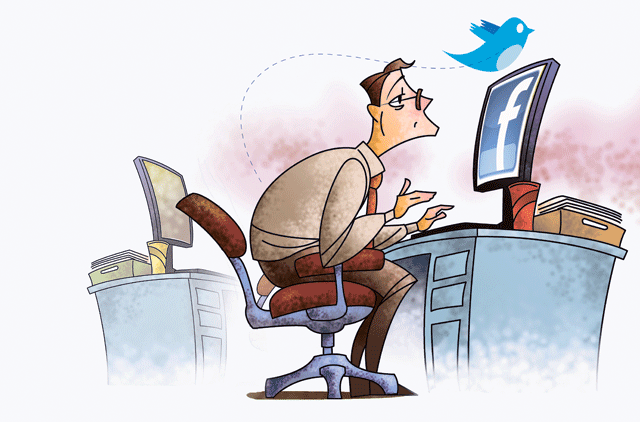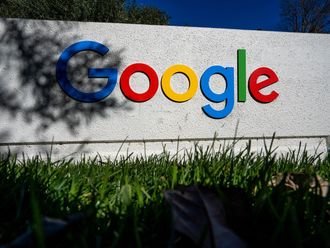
Accessing online services from the workplace may keep employees connected but the internet can also rob workers of the concentration they desperately need to accomplish daily tasks, says a time management expert.
Hazel Jackson, CEO of Biz-ability based in Dubai, said there was a time when her workplace restricted Facebook access during the better part of the day to help workers stay focused.
"At one point, we had Facebook deactivated between 9am and 5pm," Jackson told Gulf News in an interview.
Today, Facebook access has been partially restored at the people performance firm to give workers more independence but keep them connected to the business world.
Jackson said top performers in any workplace truly understand the power of staying focused by removing every distraction possible, including a long list of internet and web-based intrusions.
Juggling the daily deluge of workplace e-mails is one of the most difficult challenges to overcome, she said.
"It takes 20 minutes for the human brain to concentrate on something and we're interrupted every three minutes," Jackson said, adding the challenge of championing time management is "reducing the time spent shifting from one idea to the next."
One of the simplest and most effective single actions a person can do to instantly boost their output at work is to turn off instant "you've got e-mail" reminders that pop up randomly in the bottom right of your computer screen at work.
With e-mails pouring into each work station daily, the constant pop-up reminder every few minutes can wreak havoc on the person who is trying to stay on topic for the task at hand, she said.
"The natural tendency is to want to look at that e-mail," Jackson said, noting that the online world has "created a desire for instant response. People get frustrated if you don't instantly reply to e-mail."
A second tip to managing your online time at work to increase productivity is delaying your e-mail checks upon arriving at work until you have accomplished the top priority assignment for the day, she said.
"Take that first hour and do what is the most important thing to do that day," said Jackson.
Finishing that big task is a lot easier to do with a clear head that is not distracted by a list of e-mails demanding your attention in a dozen unrelated areas. The third most effective way to manage online time wisely, Jackson said, is to set up a separate folder for e-mail messages in which the worker is only a carbon copy (CC) recipient.
Ensuring that only direct e-mails that need immediate attention go to the primary e-mail folder will help weed out CC advisory e-mails that can be viewed later on.
The CC folder "is a clear time management practice for people to have," Jackson said.
Stricter policies
A series of surveys conducted by IT staffing firm Robert Hall Technology suggest that as work productivity is seen as declining due to online social networking or internet surfing, more companies are moving to ban or restrict online access.
One 2009 survey of US companies revealed that 54 per cent of firms had blocked Facebook, MySpace, Twitter and LinkedIn online services from being accessed in the workplace.
When the survey findings were released, Dave Willmer, Executive Director of Robert Half Technology, said a crackdown by companies was understandable.
"Using social networking sites may divert employees' attention away from more pressing priorities, so it's understandable that some companies limit access," Willmer said in a statement.
That said, Willmer also advised that those same online services can actually improve business performance.
"For some professions, however, these sites can be leveraged as effective business tools, which may be why about one in five companies allows their use for work-related purposes." In an April 2010 survey, Willmer said another survey of 1,400 chief information officers in the US found that 38 per cent of CIOs had imposed stricter access rules on social networking sites in the workplace compared to 17 per cent of companies which moved to relax rules.
"The challenge for companies is balancing the benefits of social media in the workplace with the risks," Willmer said.
"There is no one-size-fits-all approach when it comes to social networking policies. To be effective, guidelines should include input from stakeholders throughout the organisation including IT, legal, human resources, marketing, public relations and front-line employees."
Have your say
Would you like to have access to social networking websites at work? Do you have any tips to increase concentration and productivity?












